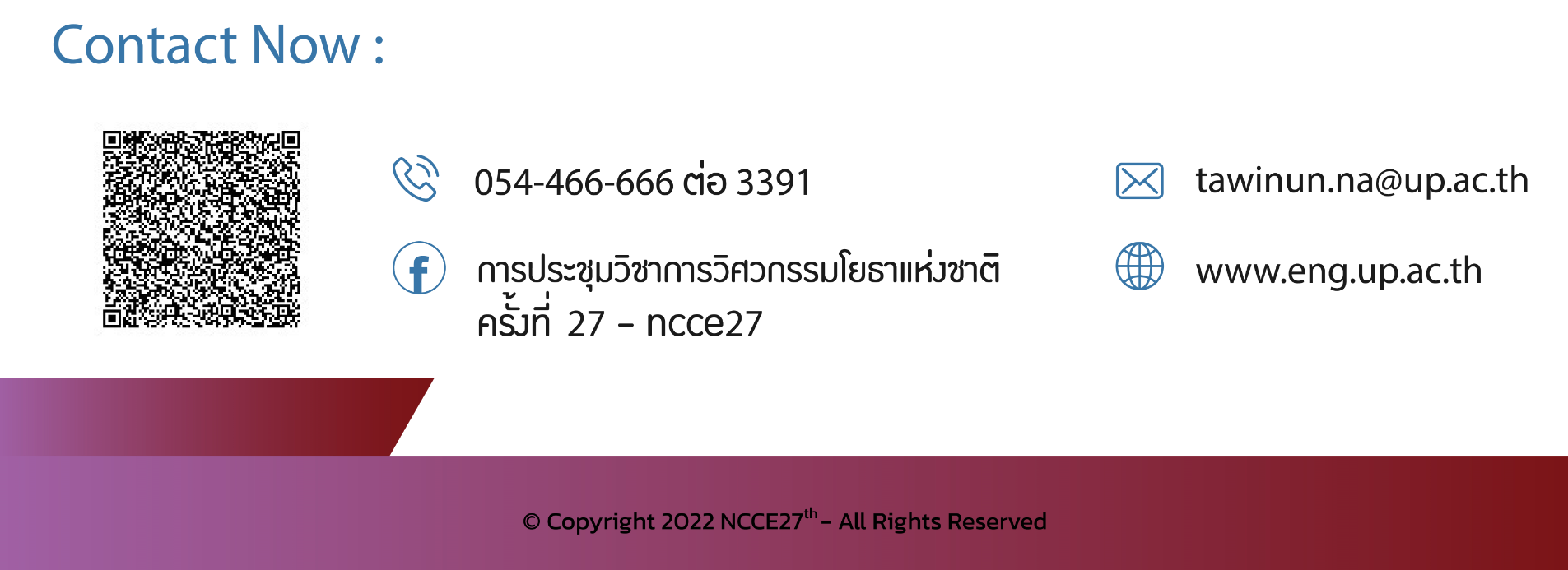Chloride Resistance of Steel Bars Coated by Hybrid Alkali-Activated Powder
Keywords:
hybrid alkali-activated powder, geopolymer powder, coating material, corrosionAbstract
This research investigates the chloride resistance of steel bars coated with hybrid alkali-activated powder (HAAP) made from 50% geopolymer powder (GP), 40% cement Portland (PC), and 10% silica fume (SF) activated by 2 molar sodium hydroxide (NH) solution and tap water. The GP was made by substituting fly ash (FA) with PC at 0% and 20% by weight of binder. Sodium silicate (NS) and 14 molar sodium hydroxide (NH) solutions were used as the liquid alkali solutions. The NS/NH ratios of 1.0 and 2.0, the L/B ratio of 0.50, and curing temperatures of 25 and 60 ºC were used in all mixtures. Test results showed that the factors of GP incorporating PC, increased NS/NH ratio, and increased curing temperature could improve the mechanical properties of the HAAP paste. The chloride penetration coefficient of the HAAP paste was between 0.07 and 0.14 x 10-12 m2/s. They were more resistant to chloride than cement paste about 88.71 time. Moreover, it was found that the steel bars coated with HAAP paste seemed to be more resistant to chloride corrosion than those coated with cement paste and with no coating using Rapid Chloride Migration Test. It might be due to the fact that the reaction products of the HAAP paste within the matrix might enhance the resistance to chloride corrosion
Downloads
Downloads
Published
How to Cite
Issue
Section
License
บทความทั้งหมดที่ได้รับการคัดเลือกให้นำเสนอผลงานในการประชุมวิชาการวิศวกรรมโยธาแห่งชาติ ครั้งที่ 27 นี้ เป็นลิขสิทธิ์ของ วิศวกรรมสถานแห่งประเทศไทย ในพระบรมราชูปถัมภ์


